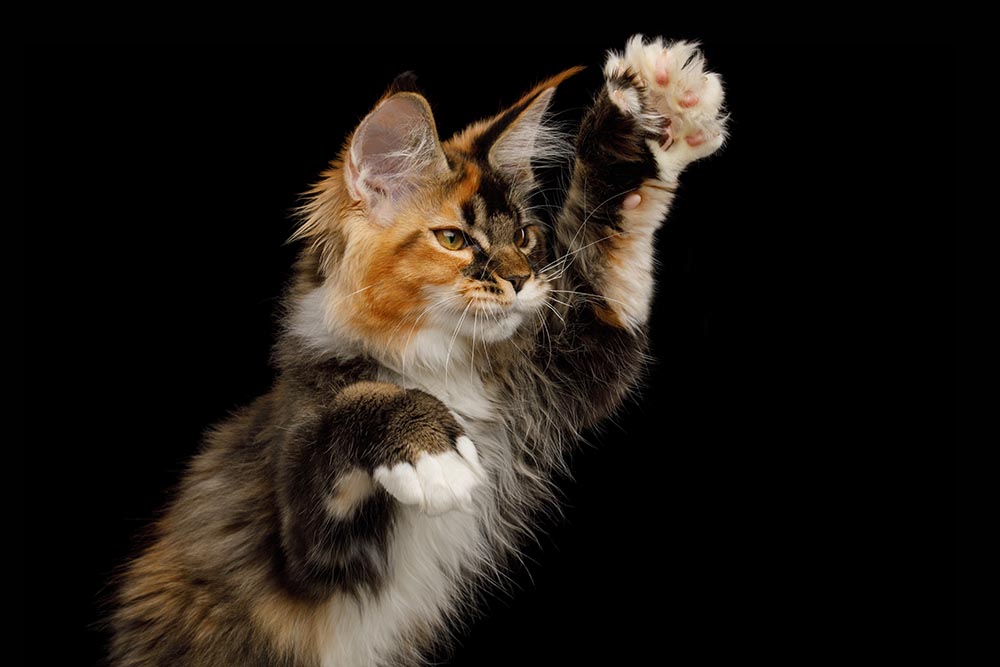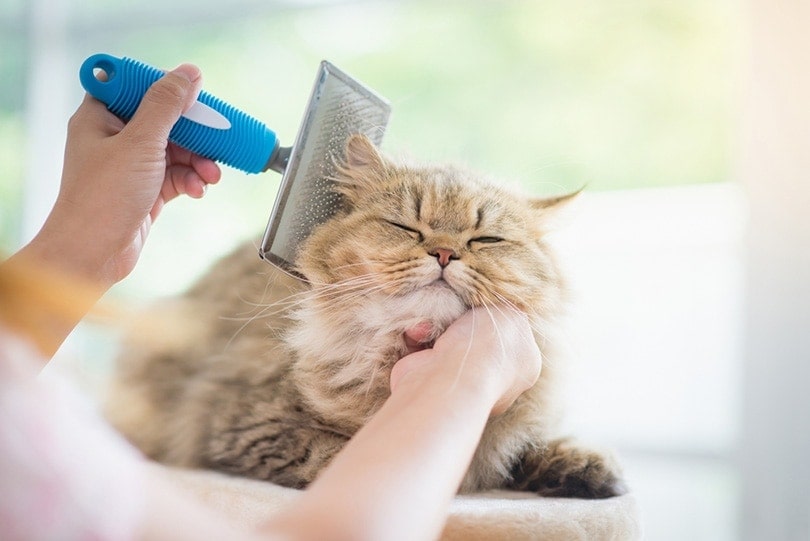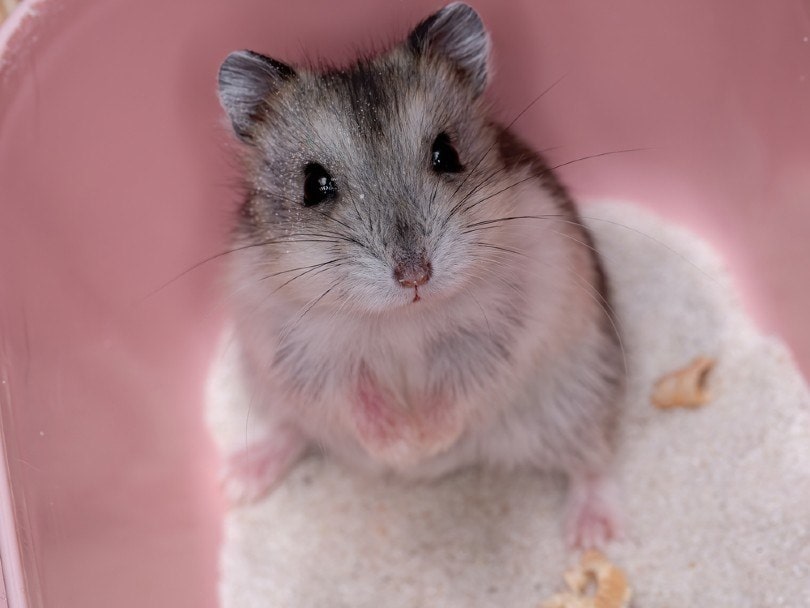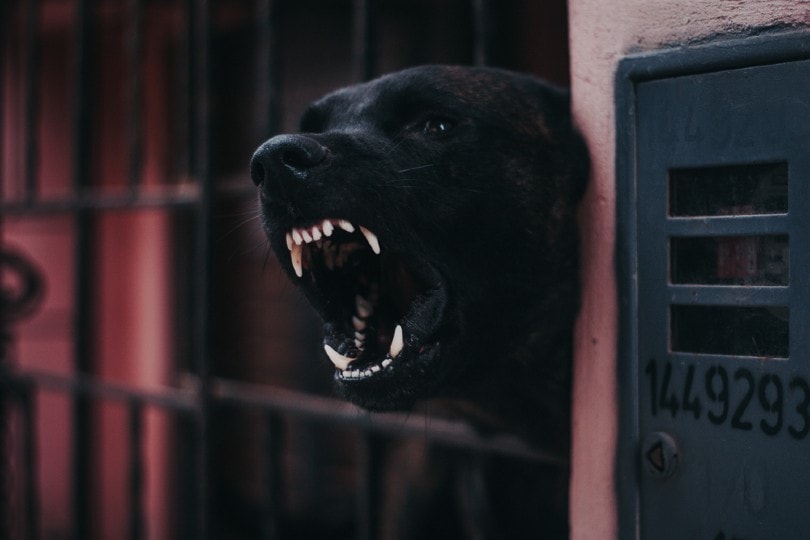VET APPROVED

The information is current and up-to-date in accordance with the latest veterinarian research.
Learn more »Click to Skip Ahead
Intelligent and affectionate, Maine Coons are usually fairly easy to train due to their smarts and eagerness to please. Of course, every cat has their own personality, so it’s still possible for them to develop behavioral issues. Gentle, firm, and consistent discipline can help correct any unwanted behaviors from your Maine Coon. Punishment is a cruel way to handle simple problems, so your goal should be to discipline them for the good of you both without resorting to inappropriate methods such as yelling or hitting. Here are 12 ways to handle your cat’s antics, starting with what’s causing them in the first place and 2 things you should never do.

The 11 Tips to Discipline a Maine Coon Cat
1. Find Out What’s Causing Their Behavior
Try to pinpoint exactly when your Maine Coon developed their destructive habits. If they’re a kitten, their behavior may simply be a part of their growing phase. While you’ll still need to discipline them, you shouldn’t worry too much since kittens have a tendency to be rascally. If an adult cat suddenly changes their tune, however, you should thoroughly examine them for any signs of illness or injury.
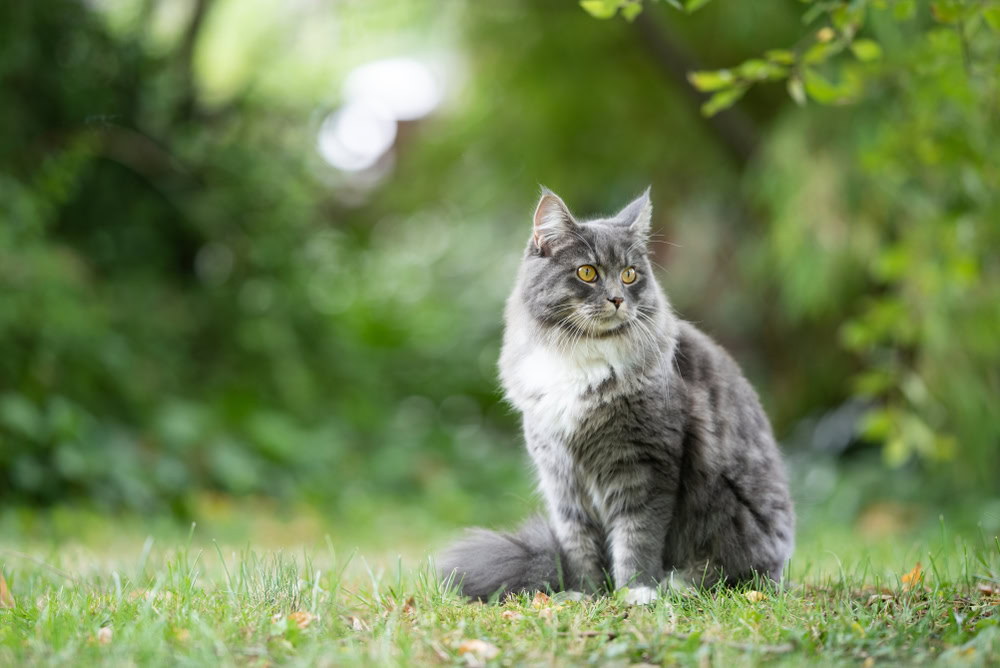
2. Make Sure Their Needs Are Met
A sudden change in behavior could signify that they have a physical or emotional need that wasn’t satisfied. Did your normally benign cat turn naughty after you left for vacation? Maybe they need a little more TLC. Is there a new stressor in their life, such as a new pet? Cats generally despise change and need a little more attention during transition seasons to reassure them of your undying love and affection. Their new behavior could be caused by something as simple as a change in the recipe of their regular food.
3. Establish the Rules
Common sense doesn’t make sense to your cat. You really can’t be angry at them for digging in the potted plant if you haven’t corrected their attempts and taken the necessary actions. Since consistency is key to success, you’ll need to make sure everyone in your household is on the same page about the rules for your cat. For the rules to be effective, everyone must take equal responsibility in enforcing them.
4. Let the Environment Provide Natural Corrections
You do not wish to be the one telling off your cat or getting between them and the “fun” or need to express a natural feline behavior. To avoid this, you can ensure that the environment itself sends a consequence to your cat for their actions. Replacing the pleasurable experience of scratching that furniture piece with an undesirable “sticky” feeling will reduce the likelihood of your Maine Coon going after the sofa. Next time, they will try the scratching post first.
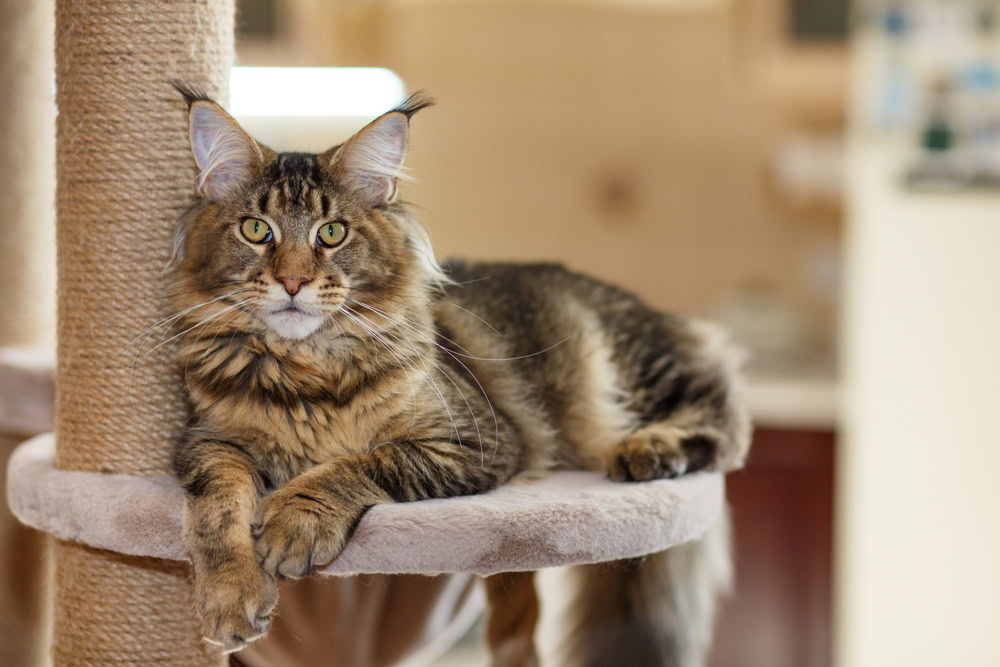
5. Be Realistic
Being realistic is oftentimes the best, most effective approach. Sometimes making it physically impossible for your cat to reach something when you are not around is the only effective approach.
6. Stay Consistent
It’s important to discipline your cat every time they repeat unwanted behavior. This speeds up the learning process and reminds them that what they’re doing isn’t good. Maine Coons are smart creatures who will figure it out quickly—as long as you’re consistent—which is another reason why all household members need to know and enforce the rules.
7. Put Them in a Brief Time Out
Cats are territorial animals who hate confinement, so you’ll want to make sure their time out corner is large enough so they don’t feel trapped. Remember, the goal is discipline, not punishment. Giving them time to cool off and refocus should not only curb their unwanted behavior, but also decrease the risk of them acting aggressively towards you, which they might be tempted to do since they can’t get what they want.
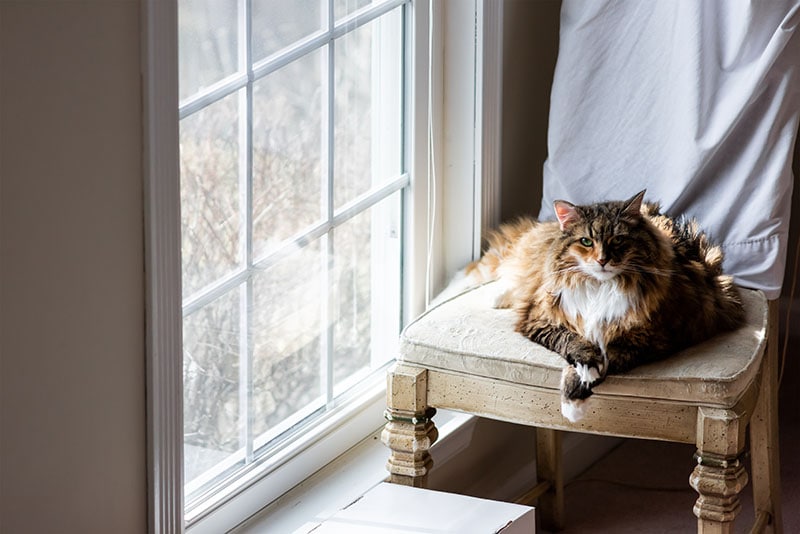
8. Create Alternative Methods For Them to Express Natural Behaviors
Cats are like toddlers. Once they set their eyes on something, it can be difficult for them to break away unless you intervene. If your cat won’t stop swatting at your new decorations, you’ll probably need to supply them with an alternative activity, such as a catnip toy or treat puzzle.
9. Give Them Credit for Their Good Behavior
Of course, you should always recognize the many good things your cat does. Most cats have a love language that depends on their personality. Figure out whether they’re more motivated by toys, affection, or food, and treat them accordingly.
10. Recognize Signs of Distress and Take Them to the Vet If the Problem Persists Without Cause
Unusual behaviors such as yowling, hiding, or limping can indicate that your Maine Coon has a medical issue. You should always call a vet anytime you notice any sudden changes in behavior since this can be a sign of a medical problem. Even if there are no drastic signs, you should still consider taking them in for a wellness visit if behavioral issues arise and continue for a while without any known cause. Stress can actually cause urinary tract problems in felines, and they might need a holistic approach to help them recover properly.
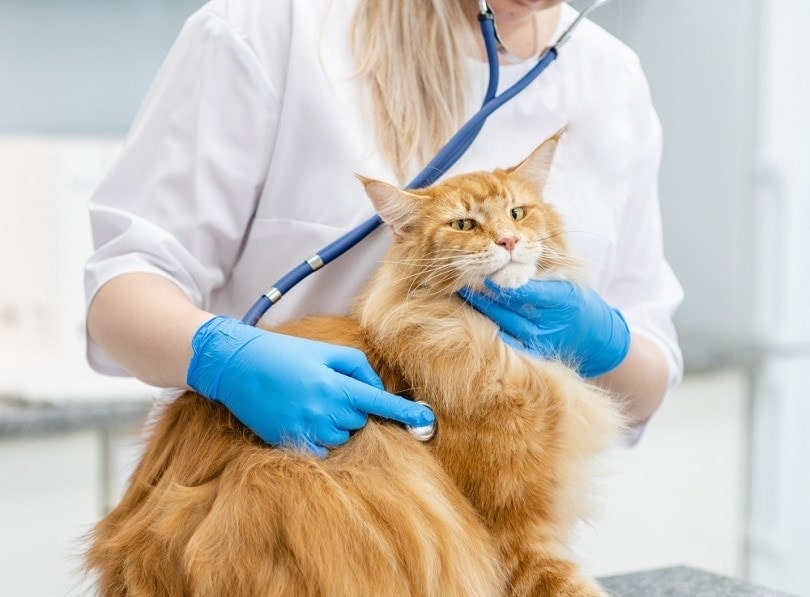
11. Consult a Cat Behaviorist
Ask your vet for recommendations or use the internet to search for a certified cat behaviorist in your area. They’ll be able to give you more tips and tricks and might be available to come to your house for a one-on-one training session.

The 2 Things You Shouldn’t Do When Training Your Maine Coon
12. Yell or Hit Your Cat
While some people may claim such methods are an effective way to discipline your cat, it can easily lead to animal abuse. Cats are sensitive creatures—physically and emotionally—and won’t tolerate such behavior. Hitting or yelling at your cat will either cause them to cower in fear, or react aggressively, which can ruin your relationship and cause permanent damage.
13. Avoid Addressing the Problem
You definitely don’t need to overreact to the issue by hitting or yelling at your cat. However, simply not addressing the problem can lead to a host of problems, including worsening behavior that becomes habitual and the development of aberrant behaviors. Because many unwanted behaviors are self-reinforcing, they can soon become a difficult-to-break habit. This scenario should ideally be avoided for you and your cat’s sake.


Summary
Patient and consistent training can transform even the most rascally Maine Coon into an obedient and gentle pet. Spending ample time with your cat fulfills their need for companionship and can help you quickly notice if something seems out of the ordinary. Determining the cause of their behavior will let you know whether you need to make some lifestyle adjustments, take them to the vet, or simply stay consistent with your expectations. Remember, the goal of disciplining your cat should never be to punish them or take revenge on them for doing wrong—even if they’ve ruined your carpet or killed your houseplant. Instead, you’ll want to correct and redirect their behavior for the well-being of both of you.
Featured Image Credit: Seregraff, Shutterstock
